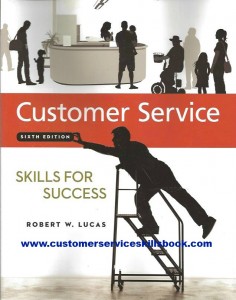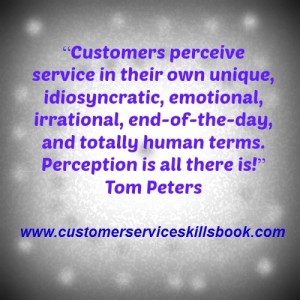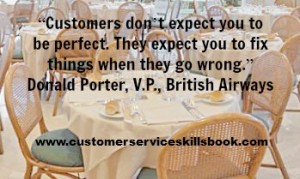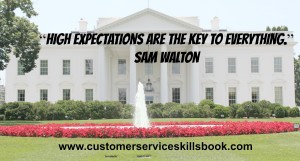POSITIVE Global Customer Service Model – Serving Diverse Customers
The following acronym (POSITIVE) provides some strategies for creating or contributing to a positive global service environment and building strong relationships with your customers. It provides a model to move you from good customer service to the best customer service possible.
Put your best foot forward. Maintain a positive approach to situations involving customers, smile frequently, and have a “can-do” attitude. When dealing with customers and potential customers, never forget that they are your reason for employment.
Offer whatever level of assistance possible. In addressing customer needs and wants, go out of your way to uncover and resolve problems and to build a strong customer-provider relationship.
Stay abreast of current industry trends and strategies for delivering quality customer service. By upgrading your knowledge and skills regularly, you will be prepared to address any type of customer situation.
Identify true customer needs by listening to proactively. You have two ears and one mouth. Use them accordingly.
Take the time to get to know more about your customers. The more you know, the better you can provide quality service.
Invite your customers to open up and share information. Ask open-ended questions (e.g. Who, What, When, How, Why, and To What Extent) that typically lead to more detailed responses from others.
Verify understanding. When a customer provides information, ensure that you heard and understood it correctly before responding. Use closed-ended (typically start with an action verb) to gather this information.
Engage in relationship-building strategies immediately. Use strong interpersonal communication skills. Start with a smile (on your face and in your voice and words) and a professional greeting when meeting customers face-to-face, over the telephone or in an email. If something goes wrong, immediately start on a course of service recovery with a sincere apology and taking steps to “make the customer whole” again with any appropriate compensation.
Source: Please Every Customer: Delivering Stellar Customer Service across Cultures, Lucas. R.W., McGraw-Hill Professional, New York, NY (2011).
——————————–
Bob Lucas B.S., M.A., M.A, CPLP is principal in Robert W. Lucas Enterprises, Inc and an internationally-known author and learning and performance professional. He has written and contributed to thirty-one books and compilations. He regularly conducts creative training, train-the-trainer, customer service, interpersonal communication and management, and supervisory skills workshops. Learn more about Bob and his organization at www.robertwlucas.com and follow his blogs at www.robertwlucas.com/wordpress, www.customerserviceskillsbook.com, and www.thecreativetrainer.com. Like Bob at www.facebook.com/robertwlucasenterprises








